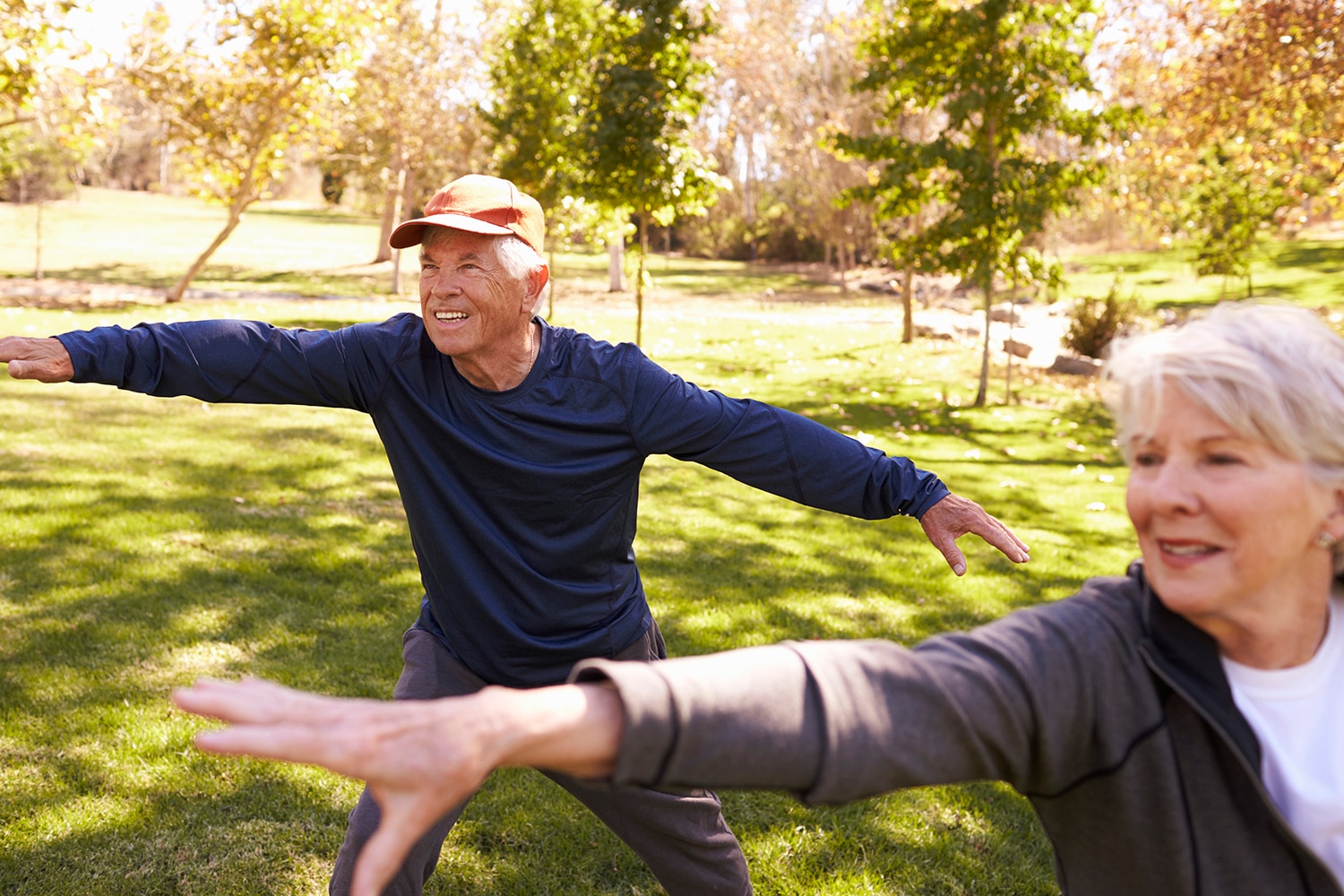Tai chi, which combines slow and graceful movements with meditation and breathing techniques, may seem to be an obvious exercise choice for cancer patients and survivors. But researchers are still exploring whether this martial art, which has been found to decrease the number of falls in adults over 70, can also help relieve the aftereffects of cancer and treatment.
A recent review published in the February 2014 issue of Complementary Therapies in Medicine analyzed 13 randomized controlled trials. People with various types of cancer who practiced tai chi or a similar method of exercise known as qigong for five to 10 weeks reported fewer symptoms of fatigue, and had increased immune function and lower levels of stress hormones, such as cortisol, compared with other interventions, including psychosocial support and the usual medical care. The analysis included 592 cancer patients and survivors, but researchers note the small number of patients in the 13 studies limits the ability to make sweeping recommendations.
Nonetheless, tai chi appears to have “numerous health benefits, especially in the area of cancer-specific quality of life,” says Yingchun Zeng, a nurse at the Third Affiliated Hospital of Guangzhou Medical University in China, who co-led the study.
More studies are needed to measure the exercise’s effect on specific cancer-related symptoms, says Kerri Winters-Stone, an exercise physiologist at the Oregon Health & Science University in Portland. Winters-Stone is enrolling 429 cancer patients in a trial dubbed GET FIT that will compare the effectiveness of tai chi with strength training in reducing falls in female cancer survivors who have completed chemotherapy.
“Tai chi trains the body to maintain stability,” she says, noting that low-impact upper and lower body workouts may help cancer survivors who have trouble keeping their balance as a result of advancing age and chemotherapy-induced neuropathy. “Tai chi is a gentle form of exercise and may be an easier form of exercise for people to start with or for people who have low tolerance for exercise due to treatment,” Winters-Stone says.
Cancer Today magazine is free to cancer patients, survivors and caregivers who live in the U.S. Subscribe here to receive four issues per year.





